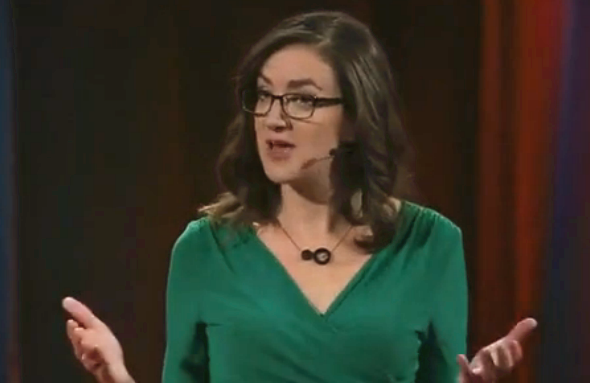So let's dig into this first question: How should we work?
所以,我们来探讨第一个问题:我们应当如何工作?
We should work like our mothers.
我们应该像我们的母亲们那样。
That's right -- we've spent decades trying to fit women into a work world built for company men.
没错,好几十年的时间里,我们试图将女性融入男性的工作环境中
And many have done backbends to fit in, but others have carved a more unconventional path,
许多人为了融入而拼尽全力,但是另一些人不同寻常。
creating a patchwork of meaning and money with enough flexibility to do what they need to do for those that they love.
她们将工作的意义与钱结合在一起,有足够的灵活性去做她们要做的事,为了她们所爱的人。
My mom called it "just making it work." Today I hear life coaches call it "a portfolio career."
我母亲称这种工作为“付诸行动”。如今,我听到生活导师称其为“组合型职业”。

Whatever you call it, more and more men are craving these whole, if not harried, lives.
不论何种称呼,越来越多的男性渴望这种不慌不忙的生活。
They're waking up to their desire and duty to be present fathers and sons.
他们开始意识到自己作为父亲与儿子的责任。
Now, artist Ann Hamilton has said, "Labor is a way of knowing." Labor is a way of knowing.
艺术家安·汉密尔顿说过,“劳动是一种认知方式”。劳动是一种认知方式。
In other words, what we work on is what we understand about the world. If this is true, and I think it is,
换句话说,我们的工作反映了我们对世界的理解。如果这是正确的(我认为是的),
then women who have disproportionately cared for the little ones and the sick ones and the aging ones,
那么女人花费更多的精力照顾孩子、病人和老人,
have disproportionately benefited from the most profound kind of knowing there is: knowing the human condition.
也就说明她们有更多的机会从最深奥的一种认知中获益,也就是对人类状态的认知。
By prioritizing care, men are, in a sense, staking their claim to the full range of human existence.
将照顾他人放在首位,在某种意义上,男性向全人类主张自己的权利。



